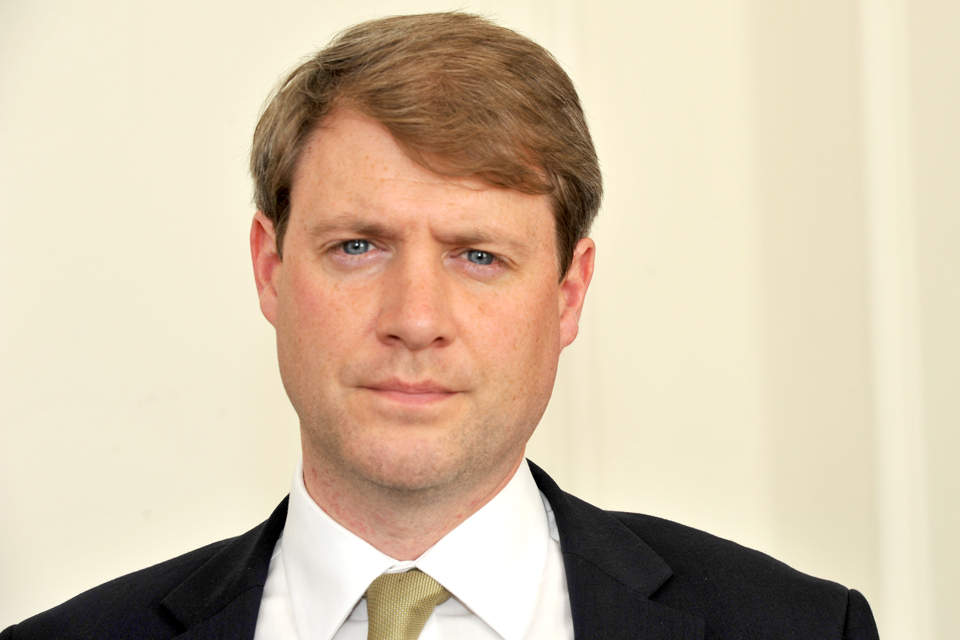Written Ministerial Statement: government accountability and transparency
Chris Skidmore MP, Parliamentary Secretary (Minister for the Constitution) gave a written update on government accountability and transparency

Chris Skidmore MP, Parliamentary Secretary (Minister for the Constitution)
Since 2010, the government has been at the forefront of opening up data to allow Parliament, the public and the media to hold public bodies to account. Such online transparency is crucial accountability for delivering the best value for money, to cutting waste and inefficiency, and to ensuring every pound of taxpayers’ money is spent in the best possible way. Indeed, such data has allowed those working within central and local government to identify savings and stop excessive spending they did not otherwise know about.
The sunlight of transparency also acts in itself as an important check and balance, and helps ensure the highest standards of public life amongst elected representatives and officials. Alongside this, open data has great potential to deliver better public services through innovative uses of digital and mobile technology.
This moves away from more bureaucratic processes under previous administrations, such as Public Service Agreements, Departmental Strategic Objectives and Comprehensive Performance Assessments, which were time consuming for public servants and opaque to the outside world.
Open data and transparency
Today a new webpage will go live on gov.uk that will, for the first time, bring together in one place a comprehensive list of the core transparency data published by all government departments, alongside details on how that data is prepared.
We have published new guidelines that clarify not only what core transparency data will be published by central government and how frequently; but also how we will ensure it is available in the most usable format and is easy to find.
This new landing page and publication guidance will help people find and navigate the information they need more easily and reaffirms our commitment to continue to drive forward the transparency agenda.
This guidance represents the minimum requirements which are common to all central government departments: many departments can and do go further.
Single Departmental Plans
We are also publishing today a refreshed set of Single Departmental Plans across government. These set out each government department’s objectives and how they will achieve them. Taken together, they show how departments are working to deliver the Government’s programme.
Single Departmental Plans are important tools for transparency and accountability. They allow the public to track the Government’s progress and performance against a number of indicators. They also indicate which Ministers and senior officials are responsible for delivering each objective.
Ministerial Accountability
Under the terms of the Ministerial Code, Ministers must ensure that no conflict arises or could reasonably be perceived to arise between their Ministerial position and their private interests. Today we are publishing an updated List of Ministers’ Interests which captures those interests relevant to Ministers’ responsibilities; it should be read alongside the two Parliamentary Registers.
We are also publishing an update report on the handling of Ministers’ Interest from Sir Alex Allan, the Prime Minister’s Independent Adviser on Ministers’ Interests, alongside an updated List of Ministerial Responsibilities and the regular quarterly disclosure of Ministers’ gifts, hospitality, overseas travel and meetings with external organisations.
The Government is also publishing agendas and the meeting notes of the first two meetings of the Coordination Committee between the Government and the DUP, as well as the terms of reference.
Diversity in public appointments
The Cabinet Office is also today publishing an action plan for improving the diversity of public appointments. Getting the balance right when making public appointments is a key part of ensuring we have public services which understand and respond to the needs of the population they serve.
In 2013, Government set an aspiration that 50% of new public appointments made each year should go to women. Good progress has been made – 49% new appointments made in 2016-17 went to women.
However, up until now we have had very little data on the make-up of existing bodies. This report sets out the record of each department, and the steps we are taking to ensure public bodies accurately reflect the diversity of 21st Century Britain with a new strategy and new aspirations for increasing diversity in public appointments.
Transparency of senior officials and special advisers
Special advisers are a critical part of the team supporting Ministers. They add a political dimension to the advice and assistance available to Ministers while reinforcing the impartiality of the permanent Civil Service by distinguishing the source of political advice and support. The Cabinet Office is today publishing the annual list of special advisers and their cost.
Special advisers are temporary civil servants. They represent 0.05% of the Civil Service pay bill. There are 88 special advisers across the whole of government; the total Civil Service has 423,000 civil servants.
Departments are also publishing routine quarterly data on gifts and hospitality, received by special advisers, as well as information on meetings with senior media figures.
Alongside quarterly data on the travel and expenses of senior officials, the Government is also publishing today the transparency returns on senior public sector pay, as well as updated guidance on the controls for remuneration of senior civil servants and ministerial appointments to public bodies.
The government will also shortly be publishing new figures on gender pay differentials across the Civil Service.
Copies of the associate documents are being placed in the Library of the House and will be published on gov.uk.